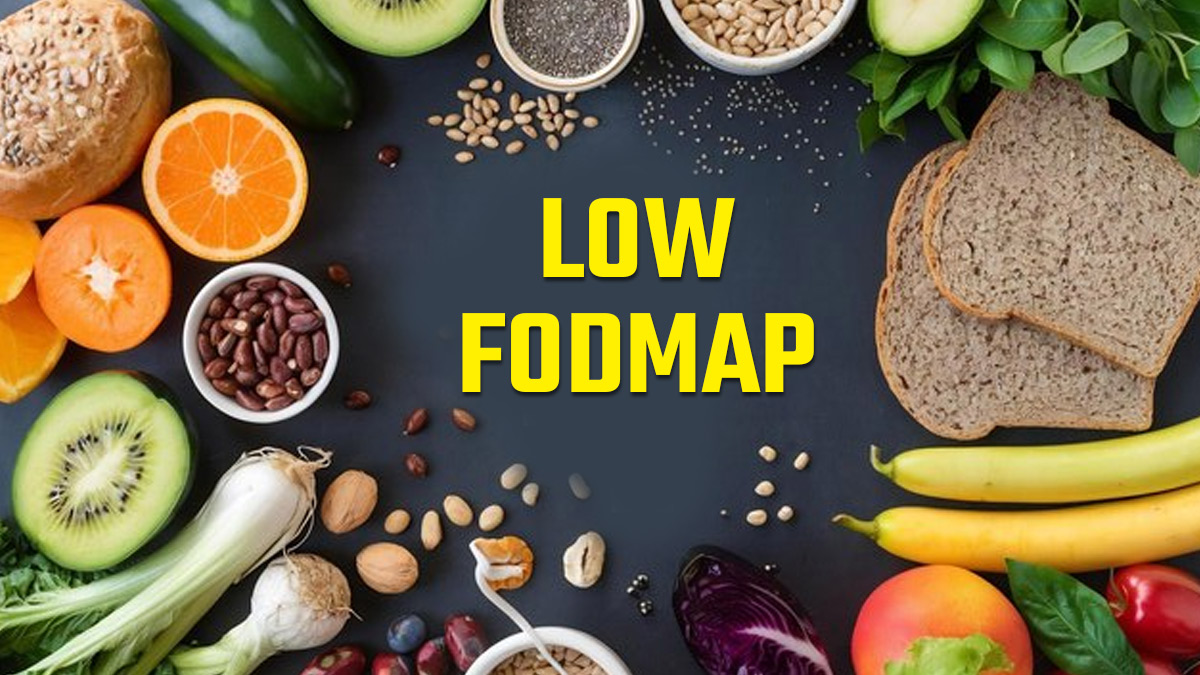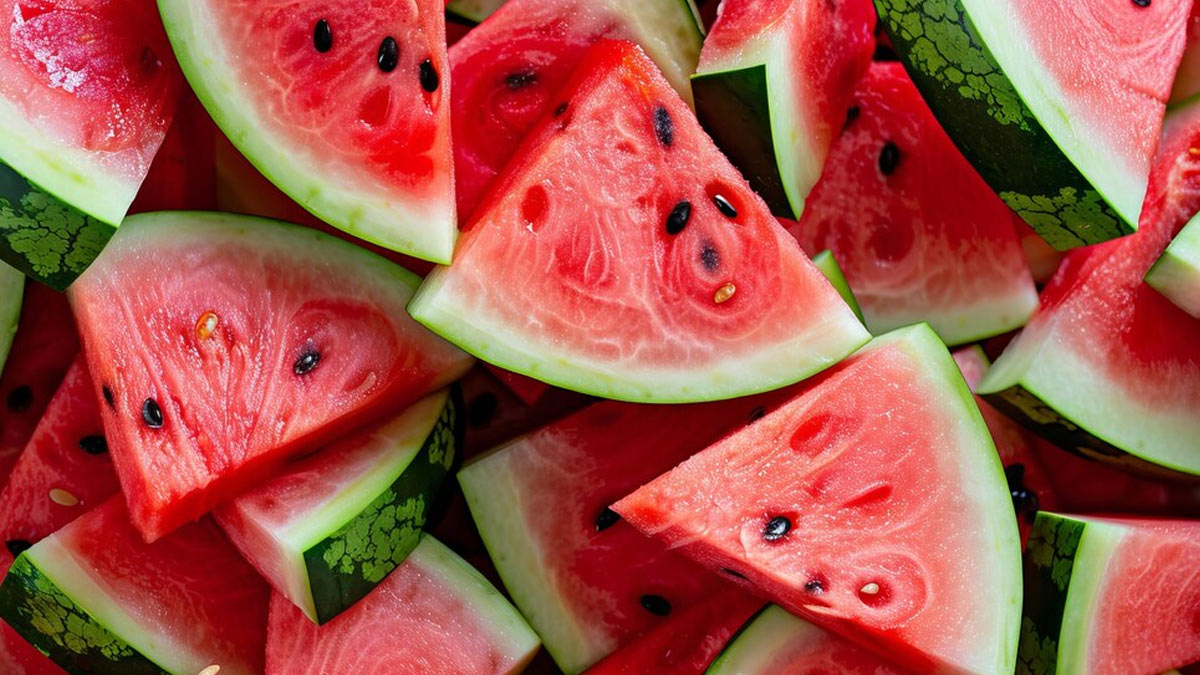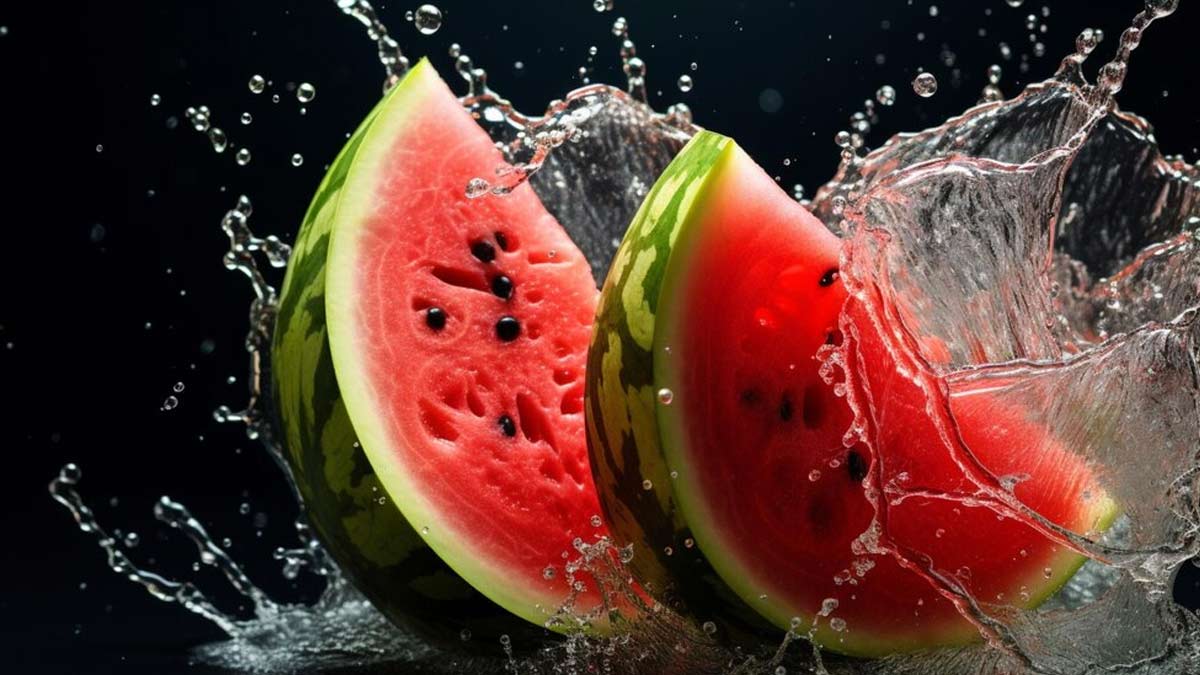Irritable Bowel Syndrome (IBS) is a common digestive condition affecting the large intestine, causing symptoms such as abdominal pain, bloating, cramping, diarrhoea, constipation, and more. In some cases, it can also lead to headaches, sleep disturbances, and chronic pelvic pain.
For those with IBS, managing diet is crucial, as certain foods and beverages can trigger symptoms. This varies from person to person, but many trigger foods fall under the category of high FODMAPs. In this article, we explore the importance of a low FODMAP diet for IBS and why watermelon, in particular, may not be the best choice for individuals with this condition.
Also Read: Low FODMAP Diet For IBS: A Gastroenterologist Shares What You Should Have And Avoid
Low-FODMAP Diet For IBS Patients
In an interaction with the OnlyMyHealth team, Dr Mangesh Keshavrao Borkar, Consultant – Medical Gastroenterologist, Manipal Hospital, Kharadi, Pune, explains what a low-FODMAP diet is and why it is recommended for patients with IBS.
He shares that FODMAPs (fermentable oligosaccharides, disaccharides, monosaccharides, and polyols) are a group of foods that can trigger gastrointestinal symptoms.
“Due to low absorption in the small intestine, gut bacteria digest these short-chain carbohydrates. This process produces bloating, pain, and gas, all of which exacerbate symptoms of IBS. Reduced consumption of foods high in fructooligosaccharides (FODMAPS) can help IBS patients feel better and operate better in their digestive systems,” he explains.
But this does not mean that people with IBS have to avoid all high-FODMAP foods. Dr Borkar says, “Many people can eat tiny amounts of some high-FODMAPS meals without experiencing any effects. The secret is to first adhere to a strict low-FODMAP diet to determine one’s tolerance levels through a phase of reintroduction. Certain high-FODMAP foods can be gradually ingested with medical advice, enabling a more well-balanced and less restrictive diet to be followed while still successfully treating IBS symptoms.”
Is Watermelon Safe To Eat For People With IBS?
Watermelon is considered a high-FODMAP food and therefore can be dangerous for those with IBS, according to Dr Borkar.
He says that it is particularly high in fructose, a type of monosaccharide that the small intestine does not absorb well.
In IBS sufferers, fructose can ferment in the gut, causing increased gas, bloating, and abdominal discomfort. As a consequence, watermelon can often be excluded from a low-FODMAP diet to help alleviate IBS symptoms.
Also Read: Expert Explains The Best Way To Treat Irritable Bowel Syndrome
Alternatives To Watermelon For IBS Patients
For those with IBS, low-FODMAP fruits can be a great alternative. These include:
- Cantaloupe
- Blueberries
- Strawberries
Dr Borkar says, “These fruits are less likely to induce symptoms associated with IBS and are easier to digest. Even though watermelon contains a lot of FODMAPs, some people with IBS might be able to handle small amounts of it. Before reintroducing watermelon, it’s sometimes recommended to speak with a doctor or dietician to see if it can be consumed in moderation.”
Conclusion
Watermelon is often considered a great fruit for hot summers due to its hydrating effect. However, for people with IBS, it may not be the best choice as it contains high amounts of fructose and can lead to gastrointestinal symptoms. However, this does not mean all IBS patients have to stop eating it. Some can also consume it in moderation. It is best to consult a doctor about what works and what may not work for you.

